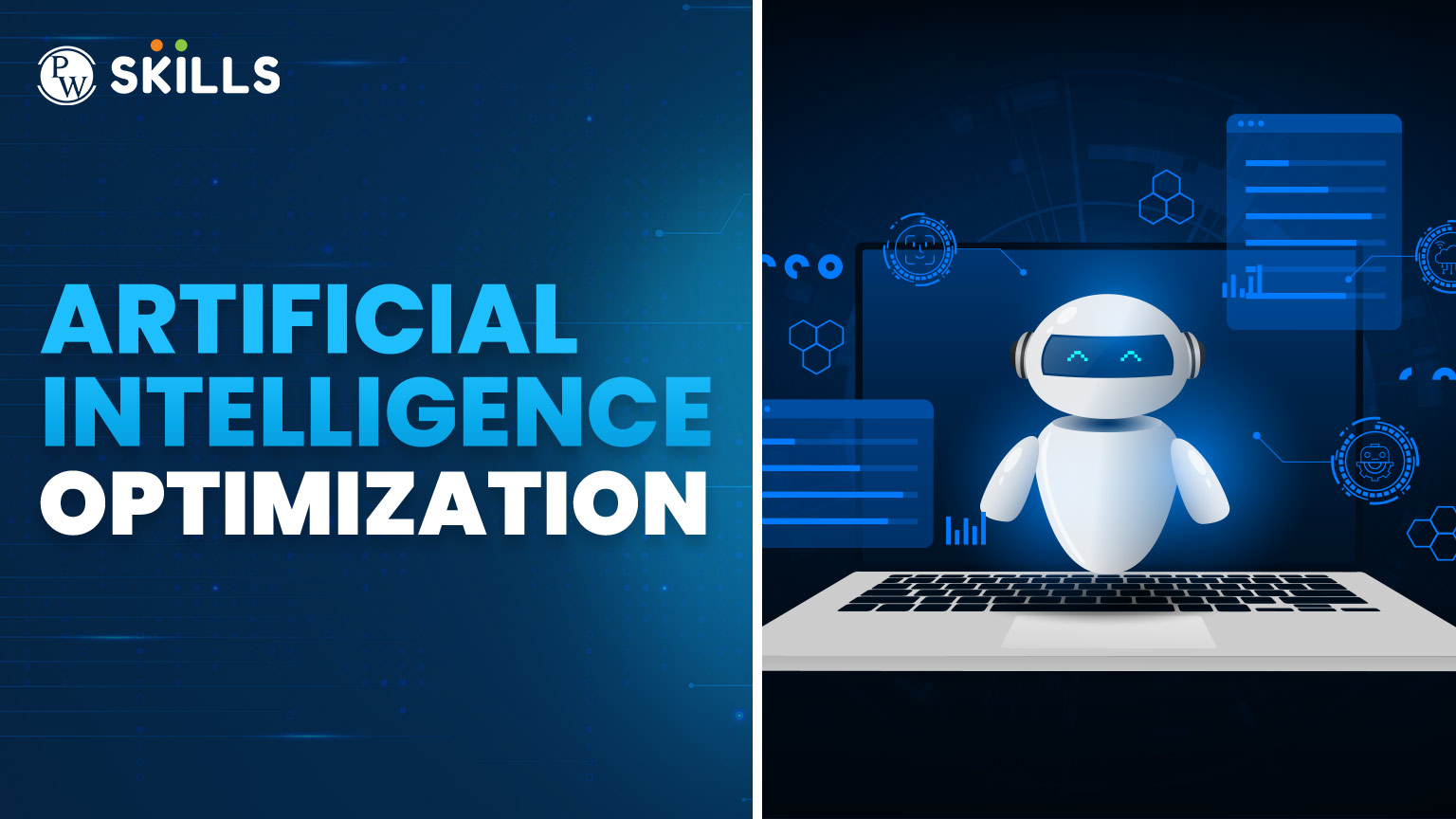Artificial intelligence Optimization can completely revolutionise the way businesses make use of content marketing to promote their business online. With so much available on the Internet, content remains one of the most important factors for visibility online. Answer engine optimization stands on three important pillars.
- Analyzing data
- Optimising information
- Delivering a personalised experience to users
This makes artificial intelligence one of the most trending successes in today’s marketing landscape. AIO can filter results and improve key business processes such as decision-making, increasing efficiency, and more. Here, we will learn more about the role of Artificial Intelligence optimization and its importance.
What is Artificial Intelligence Optimization?
Artificial Intelligence Optimization refers to a process where efficiency, performance, and decision-making capabilities of various processes in business are improved using AI techniques. For example, AI optimises the ad bidding strategies in marketing to implement better ROI In Neural network training, prediction errors are reduced with the help of AI algorithms, such as Gradient Descent, Stochastic Gradient Descent, and more.
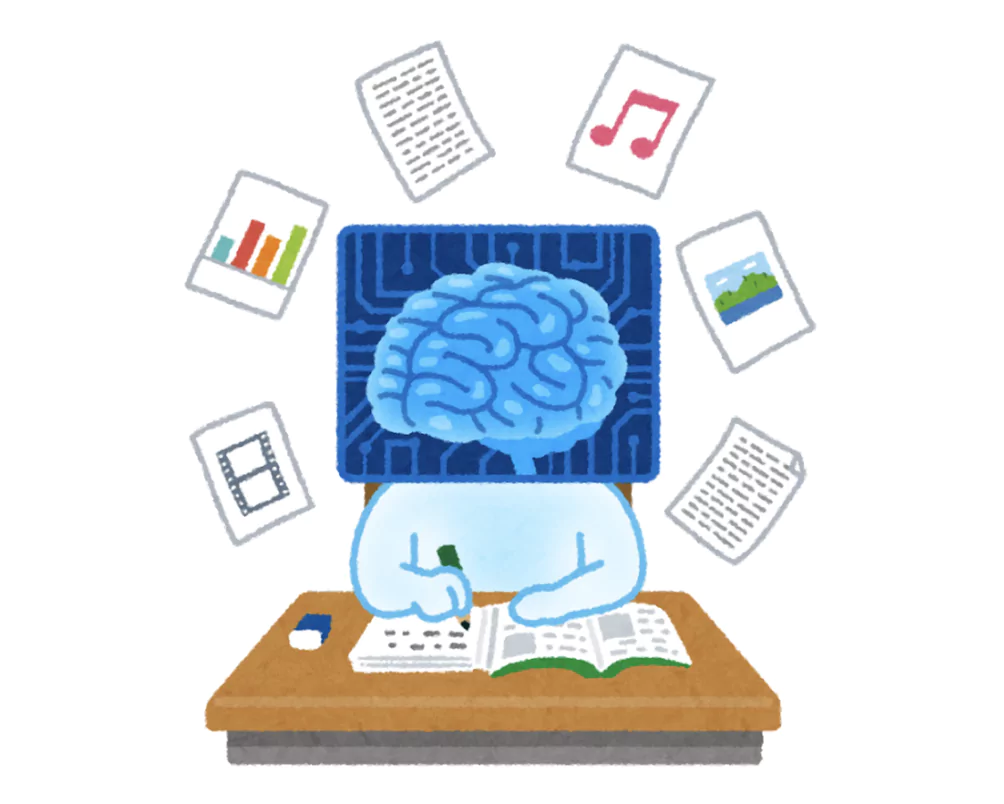
The “Artificial intelligence” refers to the practice of integrating machine learning, deep learning, reinforcement, and more to complete a process effectively, and “optimization” refers to the use of effective cost saving methods, increasing accuracy, speed, and maximizing output, and more.
Artificial Intelligence Optimization Key Takeaways
- With AI optimization structure and clarity of digital content, such as Large Language Models (LLMs), are improved.
- AIO is mainly concerned with how content is integrated, embedded, and indexed within the AI system.
- artificial intelligence optimization focuses on structure, accuracy, and schema markup to make sure the AI systems can cite and reference content materials when generating answers.
- AIO (Answer Engine Optimization) targets AI powered systems such as Perplexity, ChatGPT, Google’s AI overviews, and more.
- The core of Artificial Intelligence optimization is based on continuous improvement based on real time.
What Is the Use of Artificial Intelligence Optimization?
Artificial intelligence optimization is a continuous approach to making AI better for users around the world. Various strategies and steps are taken to improve the speed, accuracy, and efficiency of the AI models to make them capable of providing users with the best possible solution.
In digital marketing, with the increasing use of Artificial Intelligence, particularly LLMs in generating synthesised and filtered responses based on various probabilistic models, contextual interpretation, and more. AIO search is making a major shift from link-based results to context-driven generation with effective artificial intelligence algorithms.
- Artificial intelligence optimization optimizes content suited for AI algorithms rather than being based only on keyword-based ranking.
- AI optimization ensures that AI models are capable of interpreting and fetching information from the internet to give you the latest and most effective output.
In general, AI optimization integrates with AI models and business processes to improve their efficiency, enhance decision-making, boost model performance, and optimize well to solve complex problems with ease.
Components of Artificial Intelligence Optimization
If you want to learn how AI optimization works, then it is important to be familiar with their important components that fuel its operation.
1. Natural Language Processing
Natural Language Processing enables the AI systems to understand, interpret, and generate human language content. AI systems can easily interpret unstructured texts, which can be used to extract insights for better decision-making. It allows tasks like text generation, sentiment analysis, and more.
For example, when you submit your query to a chatbot then the AI system makes use of transcription to identify common complaints and provide effective solutions.
2. Machine Learning Algorithms
With various machine learning algorithms, AI can collect historical data to predict the most favorable outcomes. The collected insights can be used for informed decision making for various business processes. It can identify trends, study patterns by analysing a vast dataset.
3. Reinforcement Learning
This technique is used to train AI to make important sequential decisions through trial and error with feedback. It can easily adapt strategies based on the changing environments.
4. Big Data
This is an important component of AI Optimization, which is used to store and process large scale datasets efficiently. It provides the data that is needed for AI models to find insights, patterns and predict results.
Use Cases of Artificial Intelligence Optimization
artificial intelligence optimization is making its mark in most businesses to make their processes and operations better. Let us see some of the ways AIO can be a game-changer for businesses.
![]() Join Our Digital Marketing WhatsApp Channel
Join Our Digital Marketing WhatsApp Channel
1. Inventory Management
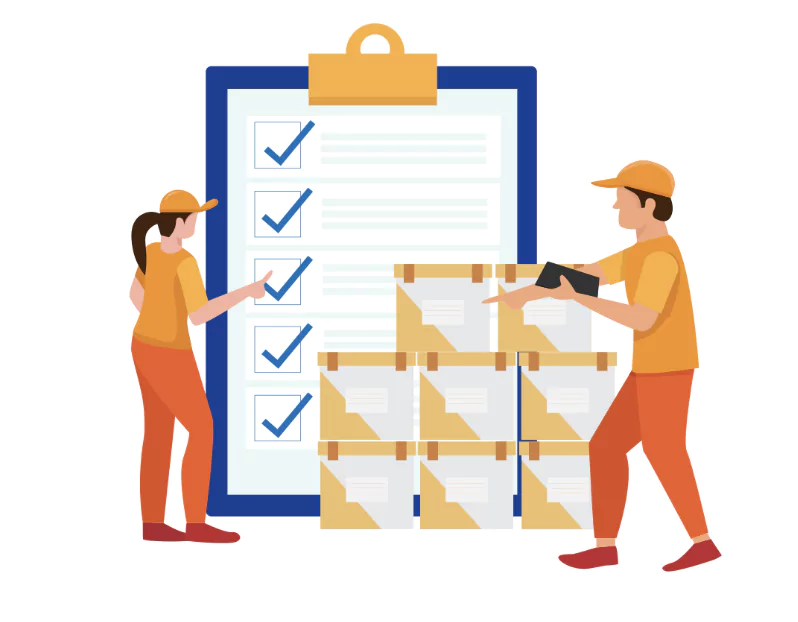
With AI optimization, you can manage inventory by keeping all data intact. Data containing full information on what is being sold and what is still in the inventory, which is being used by the smart AI system to predict how much time stock will last.
AIO can read patterns and understand which is the most popular product in the inventory, and make sure that the particular product does not run out of stock. Also, they can keep a track of the items that are not selling properly and adjust the buying frequency accordingly. Companies make their operations more productive and efficient with smart Artificial intelligence optimization, which also ensures consumer satisfaction and the growth of the business.
2. Healthcare
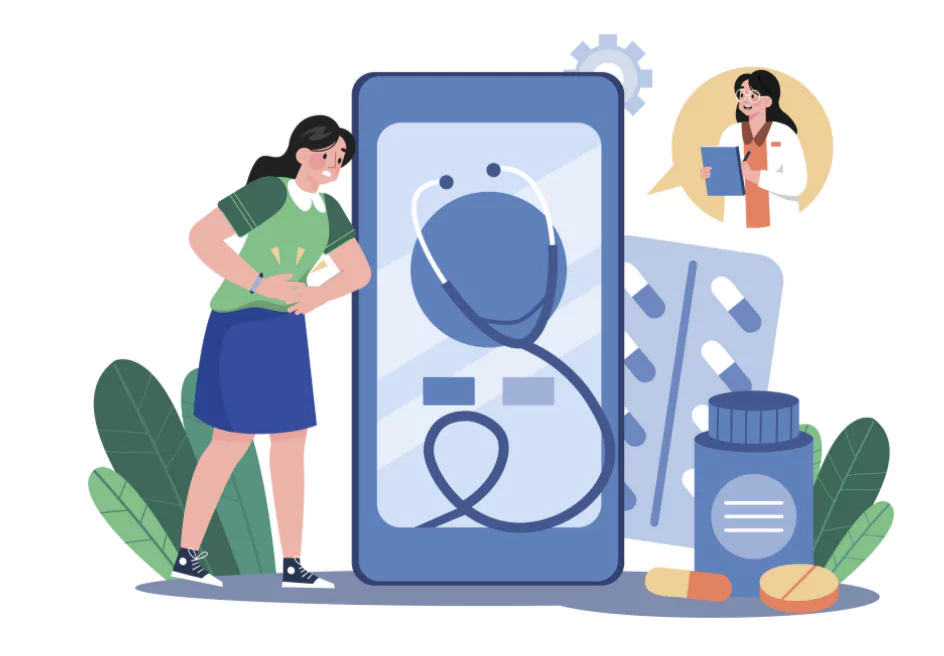
With the huge dataset available for AI models to train efficiently, it can set up a pioneer in making the healthcare system more effective. With AI optimization, downtime and breakdowns can be prevented. Also, AI can be used to get better suggestions for medication, symptom analysis, and more.
There are immense possibilities with AI in healthcare, ranging from AI-powered diagnostic tools, personalized treatment plans, improved monitoring, and more.
Read More: AI in Digital Marketing & The Ultimate Guide
3. Market Campaigns
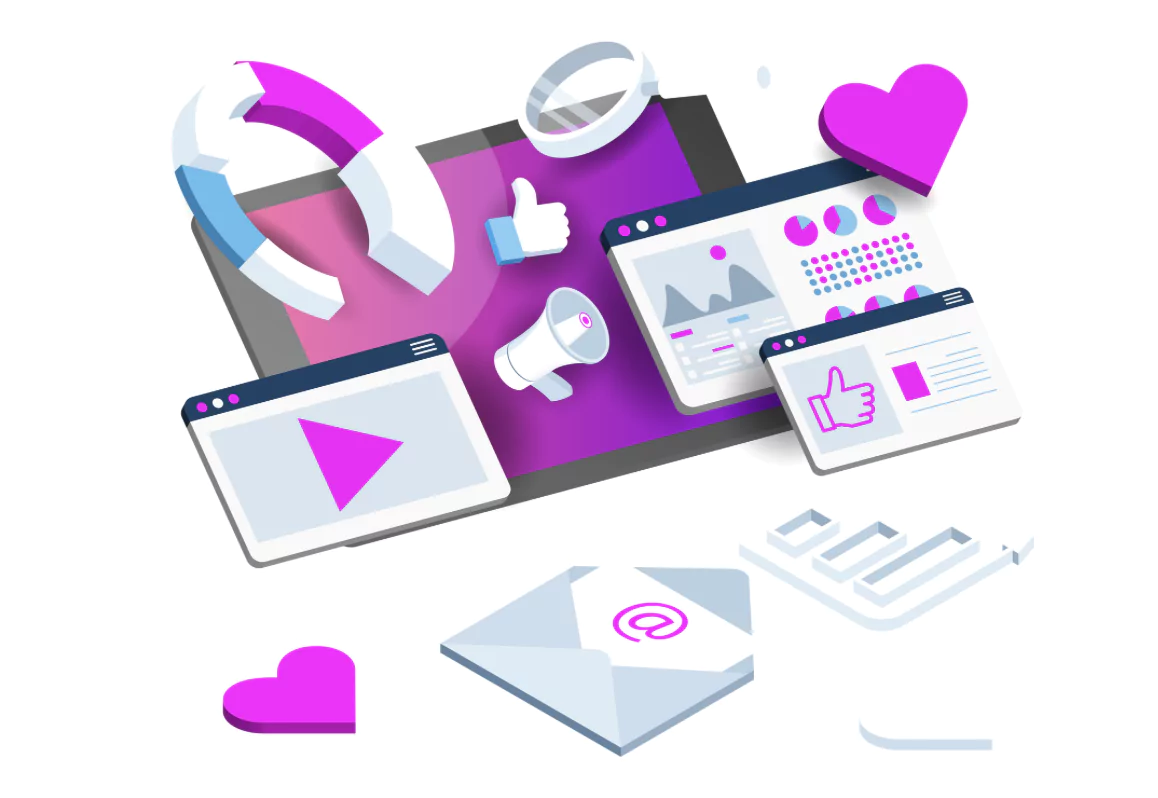
With AI optimization, smart campaigns can be created and implemented. The system carefully analyses the data available to know various activities of users i,e. What they purchased, what they like more, and what are the things they avoid. This will prompt AI to suggest the best personalized ads based on the needs and interests of the user. Marketing results start getting more fruitful when your business i,e. Products and services reach the right customers at the right time with the right message. This helps businesses in setting up strong relations with customers and making them feel valued.
4. Usage of Energy
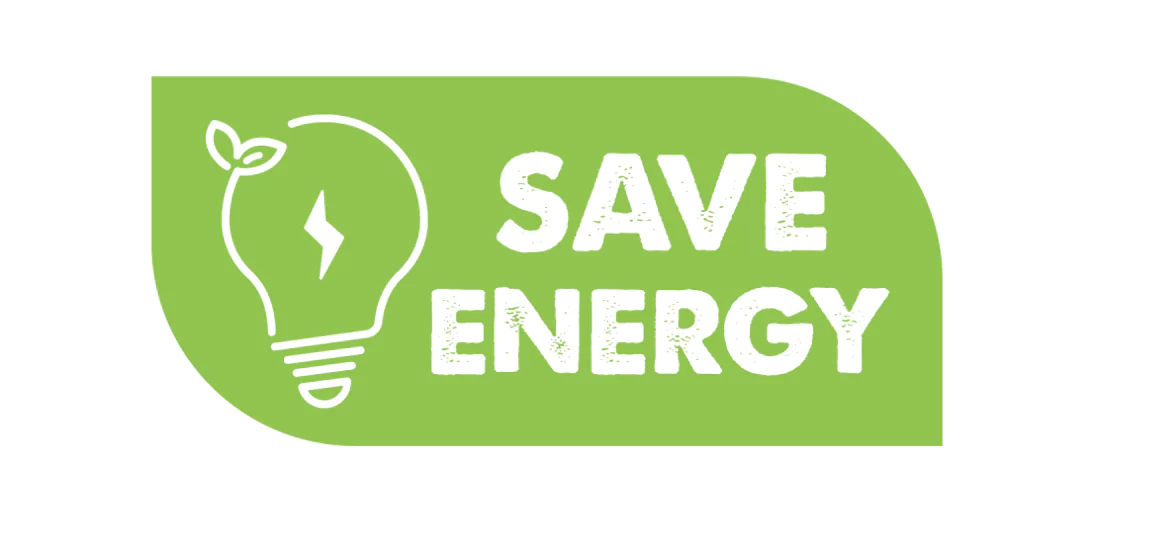
Artificial Intelligence Optimization helps in implementing effective usage of energy, avoiding energy wastage, and access usage. It keeps energy usage in check throughout the daily processes of the company and keeps track of where energy is being wasted.
With AI-supported smart appliances, it can easily control the working of these appliances, such as lights, fans, gadgets, and other appliances. It can switch off the devices that are not in use currently but are still ON for a long time. This is a major step in protecting the environment and saving money.
5. Content Generation
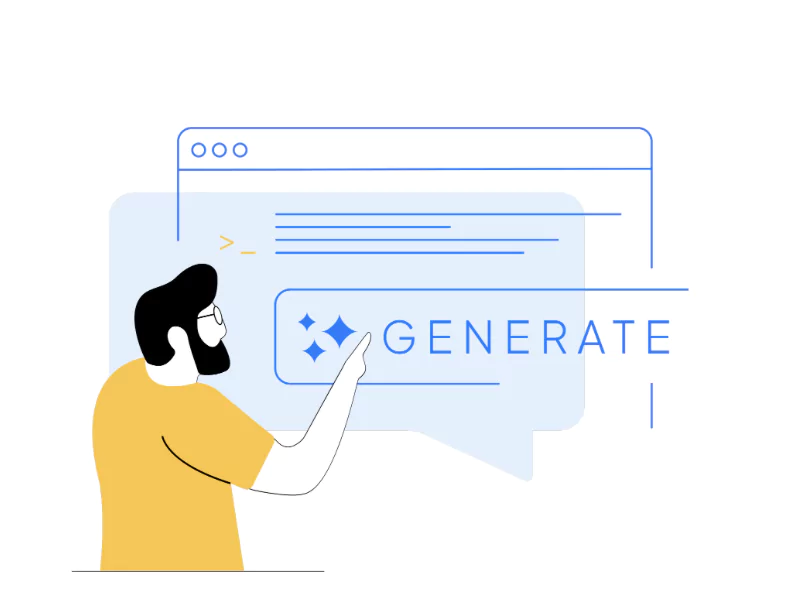
Artificial intelligence is making a strong impact in the field of content generation, creating high quality content in different formats. It uses large language models (LLMs) and natural language processing (NLP) to understand the intent, trending topics, and audience preferences.
It optimises keywords accordingly and generates relevant content quickly. When you type a query to get more information about a particular topic, the AI system analyzes competitor blogs, Google searches, communities, and more to produce results for you.
6. Customer Service
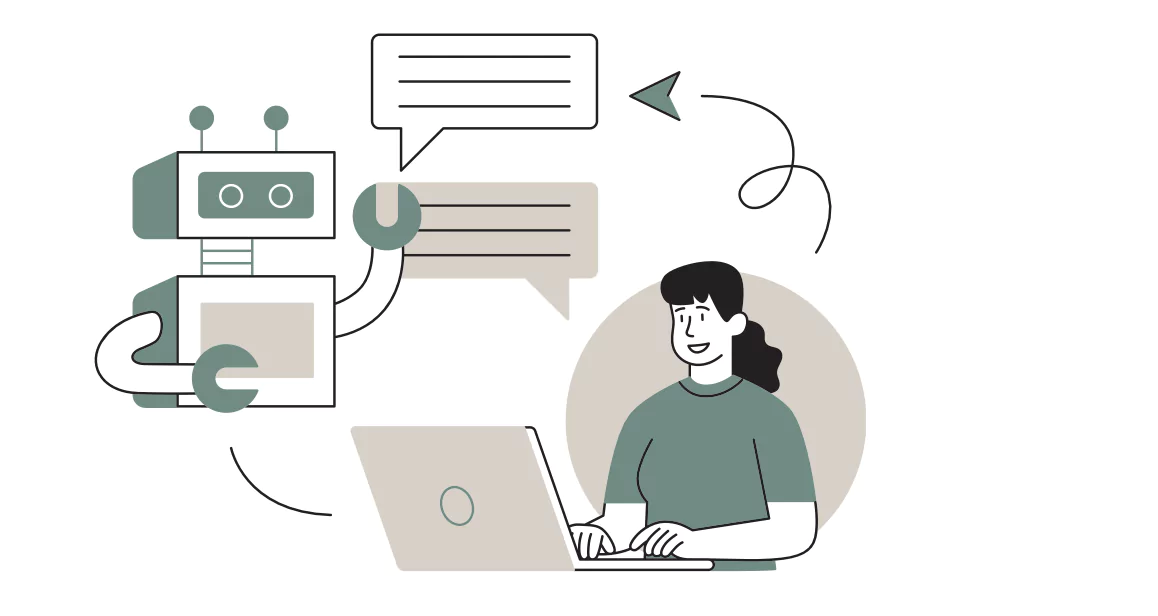
AI-powered chatbots and smart virtual assistants are used to provide personalized customer support in real time on various websites and application platforms. It answers frequently asked questions of users, guiding them through important steps in interacting with the product.
They are trained by organisations to ensure correct and consistent responses for users. These AI systems can also collect frequent pain points of users, which help brands improve their products or services.
How to Integrate AIO in Your Digital Marketing Strategy?
AI optimization techniques can enhance your digital marketing efforts in a much better way. Check the simple steps to integrate these smart AI optimization efforts into your digital marketing strategy.
1. Define Your Goals
Before you set up artificial intelligence optimization you need to have a clear digital marketing objective in your mind, which can be either increasing organic website traffic, generating more qualified leads, improving engagement, or strengthening brand awareness. A well-defined goal helps you properly implement AI-driven optimization efforts and remain aligned with your business vision.
2. Assess Your Current Digital Marketing Efforts
Take note of your current digital marketing performance through different metrics, such as website, social media, email marketing, and paid campaigns. This will help you understand your strengths and weaknesses and plan AI optimization accordingly.
For instance, if your PPC campaigns are underperforming. Now, when you partner with a specialized PPC marketing agency and work with AI optimization tools can help refine targeting, bidding strategies, and get better results on ROI.
3. Choose the Right AIO Tools
There are plenty of AI tools available online. Choose tools based on your needs, budget, and requirements. Make sure the tool integrates well with your working platform.
- Content Creation: You can use Jasper.ai, Canva, Lumen5, and more content generation tools to generate articles, visuals, and videos.
- SEO Optimization: SEMrush, Surfer SEO are popular options for keyword research, ranking analysis, and on-page improvements in SEO.
- Social Media Management: Hootsuite, Later, etc, are used for scheduling, monitoring, and engagement analysis.
- Email Marketing: You can use Mailchimp, HubSpot for personalized, automated campaigns to make your email marketing game strong.
- Paid Advertising: Google Ads, Optimizely can be used for optimizing ad performance.
- Marketing Analytics: Google Analytics, Tableau can be used for data tracking and visualization.
4. Collect and Analyze Data
Data is a key ingredient very similar to fuel for the artificial intelligence optimization, which can be used to collect insights, find trends, predict patterns through website traffic, social media insights, ad platforms, and more.
AI-powered analytics tools can process this data much faster than manual analysis, which provides an easier and smoother way of identifying hidden patterns, audience behaviors, and performance trends. Data-driven, informed decisions are possible with better results.
5. Develop an AIO Strategy
When you have the right tool and data, all you gonna need next is a clear plan for integrating AIO in your marketing efforts. The complete artificial intelligence optimization strategy must be based on the type of content you are publishing, frequency, campaign targeting, personalization methods, and performance metrics to track.
6. Integrate AIO Tools into Your Workflow
To make your digital marketing campaign strong, you need to integrate AI tools that can help you in content creation, scheduling posts, extracting trends, and setting up automated ad bidding with Google ads, and more.
For beginners, it is better if they start integrating with small AI tools and then move on to expanding it across different channels for smooth and effective integration.
Read More: Earn ₹3000/Day from Digital Marketing Earning at Home | Full Guide 2025
7. Team Training
A proper specialised team of professionals is required to handle the complete AI optimized environment. Make sure you provide your team with hands-on training sessions to get your team familiar with the tools required to handle all tasks. As the field of AI is continuously growing, continuous learning is very important to test different strategies, experiment with results, and more.
8. Monitor and Optimize
Artificial intelligence automation needs constant care and monitoring. You need to keep traffic growth, engagement rates, conversions, ROI in check. You have to be quick in implementation when AI analytics automatically flag underperforming and ineffective campaigns.
9. Stay Updated
AI technologies are continuously getting better day by day. Hence, it is important for your brand to keep itself updated with the latest trends, tools, and AI models going on in the market. Try to attend webinars, follow AI marketing blogs, join industry forums, and more.
Artificial intelligence optimization FAQs
Q1. What does Artificial Intelligence optimization mean?
Ans: Artificial Intelligence Optimization refers to a process where efficiency, performance, and decision making capabilities of various processes in business are improved using AI techniques.
Q2. What is the use of AI optimization?
Ans: AI optimization helps find the best and fastest way to complete tasks, where machine learning learns from data and makes better decisions, while Generative engine optimization creates AI content more clearly and realistically.
Q3. What are the key components of AI optimization?
Ans: Natural Language Processing, LLMs, Machine learning algorithms, predictive analytics, reinforcement learning, and big data are some of the key parts of AI optimization.
Q4. How to do AI optimization?
Ans: The most important method in AI optimization is making it well-structured and understandable. Also, allow AI crawlers in robots.txt and firewall rules. Make sure you implement semantic markup, metadata, schemas, and create the llms.txt file.

